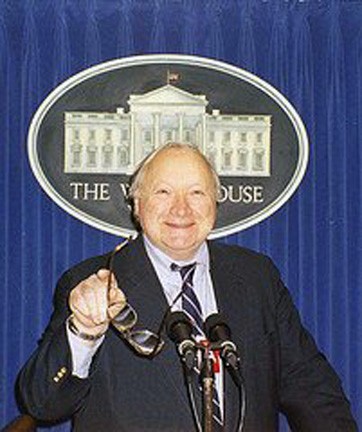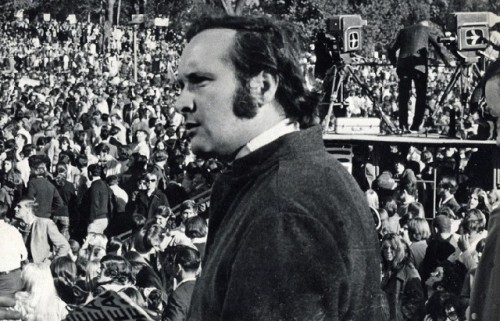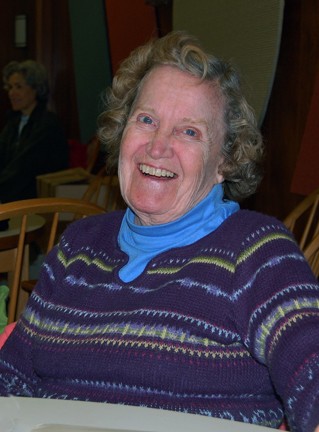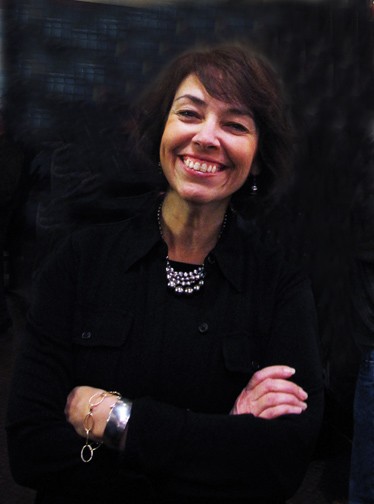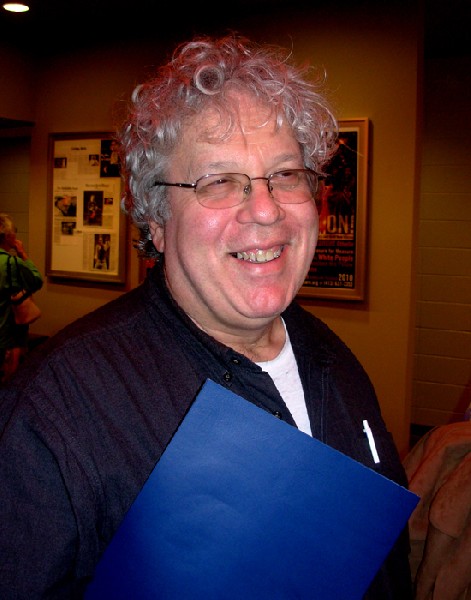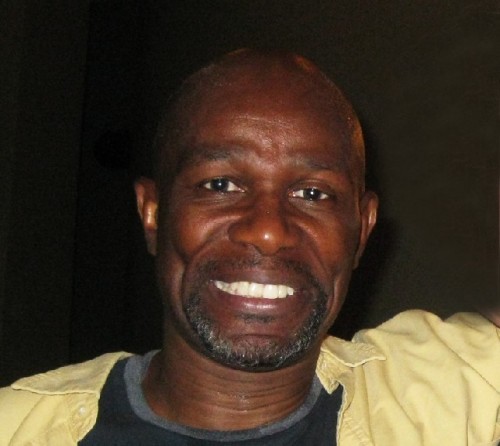Berkshire Critic Larry Murray Four
Separating the Personal and Objective
By: Larry Murray and Charles Giuliano - Feb 14, 2011
Charles Giuliano You like to research the shows you write about. Often you do phone interviews and advances on shows. Part of that comes from your marketing background and the desire to help the theatre build and audience. But another aspect entails your own education and growth as a critic.
Larry Murray Sometimes sitting in on a rehearsal as I did with Eric Hill's Macbeth, or talking with John Douglas Thompson about Richard III, can fill in missing information and I become familiar enough with the work to attempt a review.
Charles, you have done several interviews with Thompson, and I find them always fascinating. You and he seem to have gotten beyond the prepared question and the canned answer to the real nitty gritty of acting and presentation.
Spending hours or even days ahead of time preparing for a show is something we critics do. During the hectic summer in the Berkshires it is not always possible. I avoid reviewing plays if I feel I am not adequately prepared.
CG Not me. I just wing it. Sometimes I know the play but most of the time not. I am always amazed talking with Peter Bergman (critic for the Advocate) during intermissions that he has seen that play at least a dozen times. Actually I came to writing about theatre rather late. I am trained in the fine arts. I like to think of myself first as a critic and thinker and less about having knowledge of a specific medium or art form. Every work we write about has it challenges. During the summer when we are out five or more nights a week it all becomes a blur. It encourages you to go with your best shot. In Zen they say first thought best thought. No turning back.
LM That first thought, the "gut" reaction travels with me in the Berkshires. Most everyone knows my dear friend, Shirley Gomez. She is willing to see just about anything, and while she is temperate in her reactions, I love to hear what she thought. It is how I measure whether a company has reached its audience. I also carpool frequently with Gail Burns, our colleague over at Gail Sez. If you could only hear us two reviewers comparing notes, discussing, even arguing, over things. Gail is likely the region's strongest advocate for community and amateur theatre, and her reviews are well read since she likely sees more plays each year than the two of us put together. Gail is one of the few people who open new windows and doors as to why what happens on stage can often be so magical.
Don't you find talking with the actors and directors often enhance your understanding and appreciation of what they are attempting? For me it's why I look to do it ahead of time, not afterwards.
CG Absolutely. When I was a jazz critic for the Herald I talked with musicians. They were my education. Now I have interviews with theatre people. It is all a learning curve that keeps us fresh and involved. The artist is always the primary source for coming to grips with the creation. Interviews can also be tough. You have to push and not ask the usual boring questions. It is more interesting when you challenge them. But also tricky when they get annoyed at how little you know about them and their work. You have to be fast to keep up. An hour can feel like nine rounds head to head with Muhammad Ali.
In the past you served the needs of the theatre company. Now your responsibility lies in the reader. There is an inherent conflict as some times we are excited about a show and want to encourage the reader to see it. But on other occasions it is necessary to convey concerns to the reader which may have a negative impact on attendance. Can you discuss that?
LM One of the fascinating things about reviews is that not only are they read by those who are thinking of buying tickets and are seeking opinions, but also by those who have already seen it as well. The latter want to compare notes, if you will, to see if their impressions are shared by others. Sometimes, our readers are uncertain about what they just saw, didn't understand it, or perhaps couldn't make out what some of the actors were saying. These days not all actors remember to "project" their voices. Many actors assume that everyone has hearing as sharp as their own, one of my major complaints about some of the younger ones on stage.
The most avid readers of reviews - despite all the protestations you often hear - are the artists themselves. So when I am writing a review I approach it more as a report, or, in the theatre, as "notes" for the most part. When I think of the readers I imagine having the artists, the ticket buyers, the curious all at a table where I have been asked what I thought. Having this image keeps me from coming down on a show like a sledge hammer. Although there are exceptions.
CG Theatre people often tell me they don’t read my reviews and interviews. They don’t want to be influenced in how they approach their work. Perhaps after the play has closed they will get to the reviews. But somebody at the company is reading the reviews. You get to know where you stand. That is often reflected in access to interviews. During my first couple of seasons covering WTF I rarely talked with the actors. Last summer it was happening on a weekly basis. Those were wonderful and challenging experiences.
I have now spent hours on different occasions with John Douglas Thompson. It has been a really tough challenge for both of us. I hope to talk with him when he does Macbeth Off Broadway. We traveled to Hartford last fall to see him in Antony and Cleopatra followed by dinner and a dialogue. I still have to transcribe side two of the tape.
LM When I feel the performers have slacked off, taken their audience for granted, then strong words are called for. I was pretty unhappy with the Babes in Arms last summer at Berkshire Theatre Festival which uses their apprentices and students as performers. You can't measure them with the same yardstick used for other professional shows there. So instead of calling one actor or another on their performance, I mentioned no specific names, or roles, since the problems seemed not to be theirs. What I did not write is that the problem is that BTF is not a musical theatre company. It has neither the staff nor facilities to do a good job with musicals. Unfortunately, that thought congealed in the days following the review.
That's one of the problems with off-the-top-of-your-head reviews - you often could write better ones given more time, don't you think?
CG No I don’t think so. The challenge of reviewing is that you have one shot at it. That’s the discipline. You have to tell the reader what you think about the damn play. I didn’t see or review Babes in Arms because Kate Maguire, the artistic director of BTF, called and asked me not to. There were similar calls to other critics.
LM: And Gail Burns wrote a scorcher of a review, she was beyond disappointed.
CG: Some like Bergman opted to review and resented the call. We all had a dialogue about that. Instead we opted for Tanglewood that night. There is always Plan B in the Berkshires. From what I read I didn’t miss anything passing on Babes in Arms.
LM If a show is really bad, I have no compunctions about informing the reader. But I ask myself if it simply my personal taste, and some people might find it fascinating? For example, I couldn't tolerate much of the early work of Robert Brustein at American Repertory Theatre. He and Rob Orchard took me to lunch one day, and offered me the job as their marketing person. I turned them down, and when asked why, said I could not get excited about the crap they put on stage, and I had to believe in what I sold. Brustein was a real gentleman, asked me to be more specific, and after I finished said, he agreed that many people had a problem understanding the work he was doing. But, he said, there were several thousand subscribers who did like it, and he needed my help in finding more like them, rather than more like me. That was one of the most interesting insights I ever heard.
CG For several years we were season subscribers to ART. In those days we were not reviewing and paid for tickets. Of five plays per season we were lucky to like two. The rest were stinkers. Finally we just quit. Wasn’t worth it. But now and then ART was just absolutely brilliant.
Sometimes we would see ART and Huntington shows with our friend Carl Eigsti and his late wife Berkley. Carl runs the graduate program in stage design at Brandeis University. He has spent a life in theatre. After the show we would go for a snack. I would rave about the show and Carl would tear it apart. It was stunning how he could see details and nuances that just passed me by. In some ways it put a damper on my own experience. But it was also stimulating and made me think.
At the Herald and Patriot Ledger I was second or third string theatre and film critic. When I started Maverick Art, ten years ago, which preceded Berkshire Fine Arts which will be five years old this summer, I started reviewing ART and Huntington. The minute you accept comps it becomes an entirely different experience. You are more attentive. At times, initially, overwhelmed and intimidated. How to express something that will be relevant to the reader? There is the distinct possibility of making a fool of yourself.
Once you have posted a review you read the other critics. That is useful and educational. It is a way of measuring your own impressions. Particularly if you are going head to head with really good critics like Louise Kennedy, now, unfortunately, no longer with the Globe. Or Ben Brantley in the Times. I always read and respect what you and Bergman have to say. You have to study the craft and medium. The challenge is to strive to improve the sharpness and insight of your reviews. To see more. You also come to know the quirks and insights of other writers. Bergman, for example, focuses on the performances of the actors. He is interested in how they interpret and convey the character. Often I delve into the social, political and historical context of the play.
Now and then a play, for a range of reasons, just inspires me to go over the top and break all the rules. To make the writing about the play as much of an example of creative writing as the play itself. The review as a riff or be-bop. It is fun now and then to slip into gonzo, attack mode. Last summer my coverage of The Jewdy Show at WTF and Endgame at BTF were just outrageous. Of course this is the fun of having a blog. No print publication would tolerate such writing. Which is why print media often is so boring and a dying art form. In the age of Twitter, Facebook and social media straight journalism is just so over. I think we have to experiment, develop and keep up with a younger audience.
We still write long, in depth reviews. Like is anyone actually reading all this stuff? As blogs we can do what we want and explore niche audiences. We don’t have to answer to advertisers and publishers or even editors. I like to think of us as The New Yorker on line. If the content is relevant and interesting there is an audience.
What keeps us honest are the numbers. I am able to track daily visits and how long they stay. We see spikes, like when you post an interview with Randy Harrison. Often those stories go viral and are linked and copied all over the world. You know and can measure the impact of what you are doing through Goggle rankings as they pick up stories. We get about 2,000 daily visits which is off the map compared to how many readers I had over twenty years as a columnist and editor for Art New England. Plus our readers are national and global.
LM: Yes, the daily readers can seem small but the difference is the long term readership. It really adds up. You mentioned my Randy Harrison interviews, two of which I did while at Berkshire Fine Arts and one at Berkshire on Stage. Randy has a very loyal and devoted following initially developed when he was playing Justin on Queer as Folk. The series is constantly rebroadcast, and he has fans all over the world. Randy and I seem to be able to talk theatre in the same way that you and John Douglas Thompson do. The more we talk with them the greater our appreciation for the hard work they put into their craft.
I don't know about Thompson, but once the interview is published, the Harrison followers dissect what is said, and become interested in the play he is doing. You can actually see tickets being sold from their postings about who will make the trip and who won't.
From my standpoint, I feel I am fortunate to be able to share such arcane insights with readers and see them respond with interest and enthusiasm. Of course, it doesn't hurt to include a few tidbits about his personal life as well, without devolving into a gossip column.
CG: We have correspondents covering New York, Chicago, and Boston as well as the Berkshires. You recently wrote about theatre in DC when you spent the Holidays with family. Our New York critic, Susan Hall, writes about Chicago opera and theater when she visits her son. That keeps us fresh, lively and unpredictable.
I miss ART and Huntington now that we are in the Berkshires. Mark Favermann covers them for us. We try to get to NY and Broadway a few times per year. We hope to do Dublin and London this spring a week each. I have never been to Dublin but just love London and the West End.
LM When I read some of your work in Berkshire Fine Arts I get a sense you are a fearless reporter. Do you ever see the subjects you cover as the enemy? That you will smite them with the facts? Do you ever regret what you have committed to print? At the same time, what story are you proudest of, you've written thousands.
CG The first and only obligation is to the reader. We must always think in terms of what is in their best interest. They deserve to know the truth. I have no regret about anything I have written. Particularly, at this point in my life and career. There is nothing left to prove.
For the most part the theatres and performing arts understand the rules of the game. They know that you might not like a show but there is always the next one.
By contrast, I find the Berkshire museums conservative, and provincial. They expect only to be praised and get pissed off when you write a critical review. The New York art critics are tough. The Times can be brutal. From the Berkshire media museums expect only puff pieces. We give them lots of positive coverage when it is called for. They keep us out of the loop on news and press conferences. So it is fun now and then to scoop them. It keeps everyone honest.
LM Yeah and sometimes press tickets mysteriously go missing. Goes with the territory.
You often echo your earlier days at the Boston Herald. Were your editors the classic macho, chain smoking, gruff old timers we think of? What did they teach you that school and college didn't?
CG Actually my editor at the Herald, Sam Hirsch, was a jerk. What a hack. But I had a great mentor in Ian Forman the Herald’s education editor. Ian was old school and a hoot to hang out with. At one point I was telling him about taking some lumps for a story. He said to me “Charlie, in this business you have to have elephant hide.”
I had a terrific editor in John Lehman at the Patriot Ledger. And my best ever editor was Linda Tischler of the on line Sidewalk. She talked me into getting my first computer and filing by e mail. When Microsoft folded Sidewalk, which was years ahead of its time, she joined Fast Company as an editor. You can learn so much from a good editor. They teach you how to sharpen up your shit and get tough.
LM Having taught fine arts at Suffolk University for a decade or more must have been stimulating. What did your students teach you in turn?
CG By the time I left the university teaching had changed and not for the better. Students were getting more and more lazy, inept, entitled and unwilling to do any real work. There was a lot of crap about grades. What used to be a C or D has become a B minus. But I also had terrific students who were really eager to learn.
The most fun was teaching seminars on contemporary arts and the avant-garde at Boston University. I was always surprised at how conservative students could be. We would watch Beckett and Pirandello plays which of course they didn’t understand or listen to Miles, Coltrane and Ornette. I always started the semester with a John Cage video. They would get angry and start telling me that it wasn’t art. They would freak out over a performance of his Four Minutes and Thirty Three Seconds of Silence.
When they started to yell, scream and argue I would just smile. That really pissed them off. The more they resisted the better I liked it. Some classes turned into real brawls. That was a great learning experience. By the end of the semester they began to get it. Now and then, like just this week, I hear from students who still remember that class. Often it proved to be a turning point in their critical thinking.
I have a real gift for pissing people off. That’s what it takes to be a critic. Anything else is just boring.

